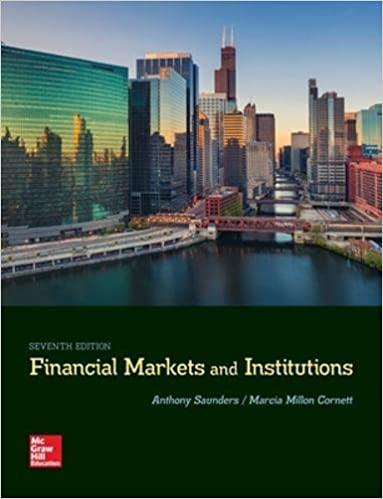Answered step by step
Verified Expert Solution
Question
1 Approved Answer
A family is looking to buy a home, which they intend to stay in for the next 5 years, after which they plan to sell
A family is looking to buy a home, which they intend to stay in for the next years, after which they plan to sell it They are deciding between taking an ARM or an FRM They think interest rates are falling, and so would prefer to have an ARM to benefit from the falling interest rates. But they are also risk averse, and prefer the idea of an FRM so that they know exactly how much they have to pay each month. They are doing the math to work out the best scenario. They have options they are considering:
Take the ARM and hold it for years until they sell the property.
Take the FRM and hold it for years until they sell the property.
Take the FRM now, and if rates fall sufficiently, to refinance the FRM with another FRM at the end of the Y
Here are the terms of the ARM and FRM they are considering now.
AdjustableRate Mortgage:
Amortization period: years
LTV
teaser rate.
Margin of
Their financial advisor predicts index rates for the ARM to change over the next as follows: Year : Year : Year : Year :
Closing costs of
Price of the property $
Fixed Rate Mortgage:
Amortization period: years
LTV
interest rate
Prepayment penalty of of the outstanding loan balance in the first years, stepping down to for the next years.
Closing costs of
Price of the property $
Questions
Calculate the outstanding loan balance on the ARM at the end of year
Calculate the interest paid on the ARM over the first years.
Calculate the total cost paid closing costs interest cost on the ARM over the first years.
Calculate the total cost paid closing costs interest cost on the single FRM over the first years.
If the borrower chooses to refinance the FRM at the end of year to a new year FRM what would the interest rate of the new FRM need to be in order for the borrower to pay the same total cost interest prepayment penalties closing costs as they would if they just stayed with the original FRM ie if they chose to not refinance Assume that the new FRM has closing costs.
If the borrower decides to take the FRM and chooses to refinance at the end of year as per questions what would the interest rate of the new refinanced FRM need to be in order for the borrower to pay the same total cost interest prepayment penalties closing costs as if they had decided to take the ARM for years?
Step by Step Solution
There are 3 Steps involved in it
Step: 1

Get Instant Access to Expert-Tailored Solutions
See step-by-step solutions with expert insights and AI powered tools for academic success
Step: 2

Step: 3

Ace Your Homework with AI
Get the answers you need in no time with our AI-driven, step-by-step assistance
Get Started


